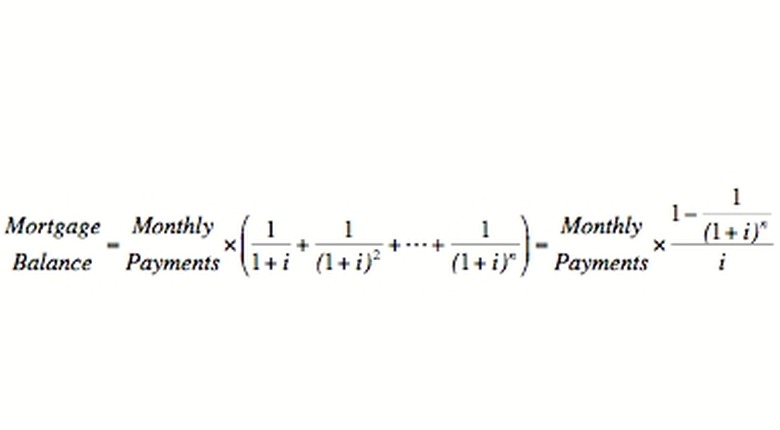How Are Polynomials Used In Life?
Polynomials are equations of variables, consisting of two or more summed terms, each term consisting of a constant multiplier and one or more variables (raised to any power). Since polynomials include additive equations with more than one variable, even simple proportional relations, such as F=ma, qualify as polynomials. They are therefore very common.
Finance
Finance
Assessment of present value is used in loan calculations and company valuation. It involves polynomials that back interest accumulation out of future liquid transactions, with the aim of finding an equivalent liquid (present, cash, or in-hand) value. Fortunately, numerous payments can be rewritten in a simple form, if the payment schedule is regular. Tax and economic calculations can usually be written as polynomials as well.
Electronics
Electronics
Electronics use many polynomials. The definition of resistance, V=IR, is a polynomial relating the resistance from a resistor to the current through it and the potential drop across it.
This is similar, but not the same as, Ohm's law, which is followed by many (but not all) conductors. It states that the relation between voltage drop and current through a resistor is linear when graphed. In other words, resistance in the equation V=IR is constant.
Other polynomials in electronics include the relation of power loss to resistance and voltage drop: P=IV=IR^2. Kirchhoff's junction rule (describing current at junctions) and Kirchhoff's loop rule (describing voltage drop around a closed circuit) are also polynomials.
Curve Fitting
Curve Fitting
Polynomials are fit to data points in both regression and interpolation. In regression, a large number of data points is fit with a function, usually a line: y=mx+b. The equation may have more than one "x" (more than one dependent variable), which is called multiple linear regression.
In interpolation, short polynomials are joined together so they pass through all the data points. For those who are curious to research this more, the name of some of the polynomials used for interpolation are called "Lagrange polynomials," "cubic splines" and "Bezier splines."
Chemistry
Chemistry
Polynomials come up often in chemistry. Gas equations relating diagnostic parameters can usually be written as polynomials, such as the ideal gas law: PV=nRT (where n is mole count and R is a proportionality constant).
Formulas of molecules in concentration at equilibrium also can be written as polynomials. For example, if A, B and C are the concentrations in solution of OH-, H3O+, and H2O respectively, then the equilibrium concentration equation can be written in terms of the corresponding equilibrium constant K: KC=AB.
Physics and Engineering
Physics and Engineering
Physics and engineering are fundamentally studies in proportionality. If a stress is increased, how much does the beam deflect? If a trajectory is fired at a certain angle, how far away will it land? Well-known examples from physics include F=ma (from Newton's laws of motion), E=mc^2 and F—r^2=Gm1—m2 (from Newton's law of gravitation, though usually the r^2 is written in the denominator).
Cite This Article
MLA
Dohrman, Paul. "How Are Polynomials Used In Life?" sciencing.com, https://www.sciencing.com/polynomials-used-life-5479798/. 24 April 2017.
APA
Dohrman, Paul. (2017, April 24). How Are Polynomials Used In Life?. sciencing.com. Retrieved from https://www.sciencing.com/polynomials-used-life-5479798/
Chicago
Dohrman, Paul. How Are Polynomials Used In Life? last modified August 30, 2022. https://www.sciencing.com/polynomials-used-life-5479798/
